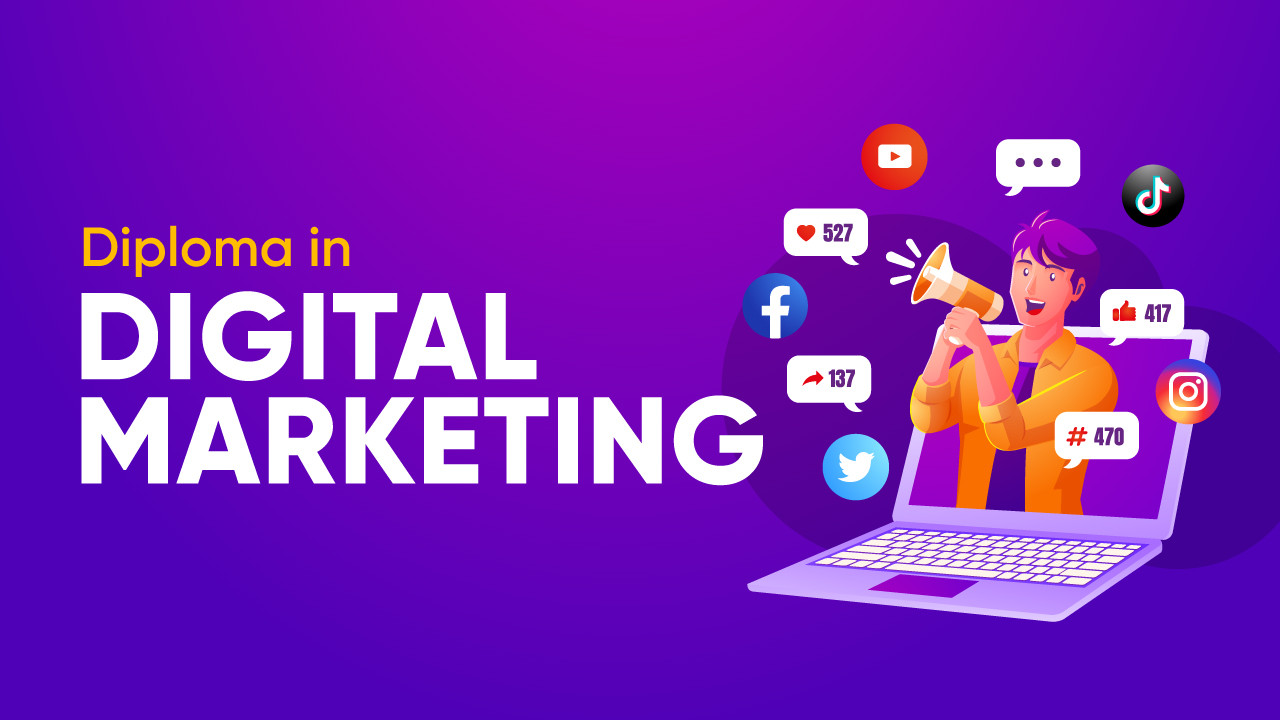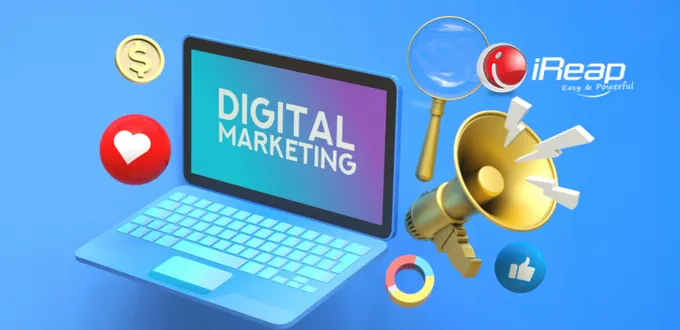What Are the Key Strategies in Digital Marketing?
In the fast-paced world of business today, digital marketing has become a vital component for success. As consumers increasingly turn to the internet for their purchasing decisions, companies need to adopt effective digital strategies to stay ahead. Digital marketing isn't just about building a website or running an ad campaign. It’s about connecting with customers at every stage of their buying journey. To do this, businesses must focus on various key strategies that form the backbone of a successful online presence. If you're looking to deepen your understanding and skills, consider enrolling in a digital marketing course in Lahore to stay ahead in this competitive industry.

- Search Engine Optimization (SEO)
SEO is the process of optimizing your website so that it ranks higher on search engine results pages (SERPs). This strategy is crucial because most users don’t go beyond the first few search results. Effective SEO requires a comprehensive understanding of how search engines work and what your target audience is looking for.
The core components of SEO include:
- Keyword Research: Identifying the right keywords that your target audience is searching for.
- On-page SEO: Optimizing individual pages on your website by using relevant keywords, meta descriptions, header tags, and high-quality content.
- Off-page SEO: Building backlinks from reputable sources to increase your website’s authority.
- Technical SEO: Improving website speed, mobile-friendliness, and site structure to enhance user experience.
By ranking higher on search engines, businesses can increase visibility, drive organic traffic, and generate more leads.
- Social Media Marketing
Social media platforms like Facebook, Instagram, Twitter, LinkedIn, and TikTok are indispensable tools for businesses looking to engage with their audience. Social media marketing focuses on building brand awareness, fostering customer loyalty, and driving traffic to your website.
Effective social media strategies include:
- Content Creation: Posting engaging, relevant content that resonates with your audience. This could be videos, articles, infographics, polls, etc.
- Paid Ads: Running paid advertisements on platforms like Facebook and Instagram to reach a targeted audience.
- Community Engagement: Interacting with your followers, responding to comments, and joining relevant conversations.
- Influencer Marketing: Partnering with influencers who can promote your products to their dedicated followers.
By using social media, businesses can create authentic connections with customers and establish a stronger online presence.
- Content Marketing
Content marketing revolves around creating valuable content that educates, informs, or entertains your target audience. This strategy goes beyond promoting products or services; it’s about providing useful resources that help potential customers solve problems.
Types of content marketing include:
- Blogs: Writing informative blog posts that answer questions, address concerns, or share industry insights.
- E-books & Whitepapers: Offering in-depth resources that help your audience dive deeper into a particular topic.
- Video Content: Creating engaging videos that demonstrate your products or services or provide helpful tutorials.
- Podcasts: Sharing audio content that offers value and fosters deeper connections with your audience.
A well-executed content marketing strategy positions your brand as an authority in your field, builds trust, and encourages customer engagement.

- Email Marketing
Despite the rise of social media and other communication platforms, email marketing remains one of the most effective ways to engage with your audience. It’s a highly personalized approach that can lead to higher conversion rates and stronger customer relationships.
Effective email marketing strategies include:
- Building an Email List: Collecting email addresses from interested customers, often through lead magnets like free guides or discounts.
- Segmentation: Segmenting your email list based on user behavior, demographics, or interests to send targeted emails.
- Personalization: Using the recipient’s name, past purchase history, or preferences to create tailored email content. For a deeper dive into effective email marketing strategies, you can explore a digital marketing course in Pakistan to enhance your skills and knowledge.
- Automation: Setting up automated email campaigns like welcome emails, product recommendations, or cart abandonment reminders.
Email marketing helps businesses nurture leads, promote new products, and maintain an ongoing relationship with their customers.
- Pay-Per-Click (PPC) Advertising
PPC advertising involves paying for clicks on your ads, which can appear on search engines, social media platforms, or other websites. Google Ads and Bing Ads are the most popular platforms for PPC campaigns, while Facebook, Instagram, and LinkedIn offer paid ad options as well.
The success of PPC campaigns depends on:
- Targeting the Right Audience: Using demographic and behavioral data to ensure your ads reach the right people.
- Ad Copy & Design: Creating compelling ad copy and eye-catching designs that drive users to click.
- Landing Pages: Directing users to a well-optimized landing page that encourages conversions.
- Budget Management: Monitoring your spend and adjusting bids to get the most out of your PPC budget.
PPC campaigns are an excellent way to drive targeted traffic to your website and generate immediate results, especially when organic traffic takes longer to build.
- Affiliate Marketing
Affiliate marketing is a performance-based strategy where businesses reward third-party marketers (affiliates) for driving traffic or sales to their website through their marketing efforts. Affiliates can be bloggers, influencers, or other businesses with an established online presence.
Key components of affiliate marketing include:
- Finding the Right Affiliates: Partnering with affiliates who have a relevant audience and can promote your products effectively. To learn more about affiliate marketing and other essential digital strategies, consider taking a digital marketing course online for flexible, in-depth learning.
- Setting Clear Commission Structures: Determining how much you’ll pay affiliates per sale or lead generated.
- Tracking and Analytics: Using tracking links to monitor the performance of affiliate campaigns.
Affiliate marketing is a great way to expand your reach without upfront costs, as you only pay for performance.
- Online Reputation Management (ORM)
Your online reputation is crucial, as it affects how customers perceive your brand. ORM involves monitoring and influencing your online presence to ensure positive reviews and feedback are prioritized. Negative reviews or complaints can significantly impact your sales, so addressing them proactively is important.
Strategies for effective ORM include:
- Monitoring Brand Mentions: Using tools to track mentions of your brand across social media and review websites.
- Responding to Reviews: Engaging with customers who leave reviews (both positive and negative) to demonstrate your commitment to customer satisfaction.
- Encouraging Positive Reviews: Actively requesting satisfied customers to leave reviews on popular platforms like Google or Trustpilot.
ORM helps businesses maintain a trustworthy image, build customer loyalty, and attract new customers.

Conclusion
Digital marketing is a dynamic and essential part of any business strategy today. By focusing on key strategies such as SEO, social media marketing, content marketing, email marketing, PPC advertising, affiliate marketing, and online reputation management, businesses can build strong, lasting relationships with customers and increase their online visibility.
To master these strategies and stay ahead of the competition, you need to continuously evolve and adapt to new trends. One way to stay updated and enhance your skills is by enrolling in courses like those offered at skills up academy, where you can gain hands-on experience and expert insights into the world of digital marketing.
Contact
For any inquiries or assistance, feel free to contact us at 0321 1111 218. We're here to help and would love to hear from you.
What's Your Reaction?












